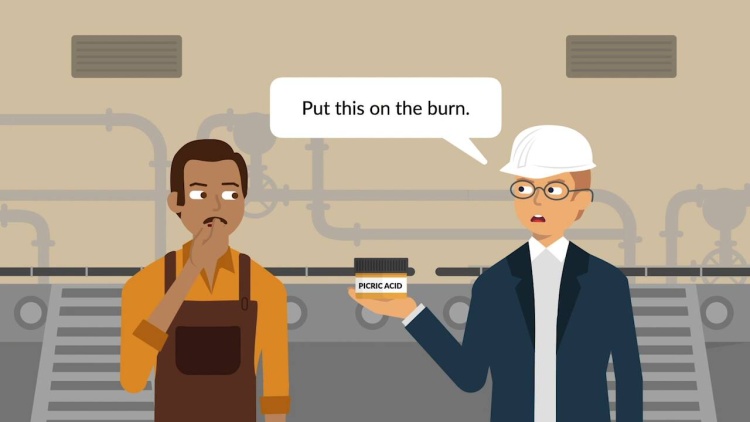Smith v. Leech Brain & Co. Ltd.
Queen’s Bench Division, United Kingdom
2 Q.B. 405 (1962)

- Written by Denise McGimsey, JD
Facts
William Smith worked for an iron works, Leech Brain & Co. Ltd. (Leech) (defendant). Operating a remotely controlled crane, Smith galvanized items by dipping them into a large tank of molten metal. In order to protect its crane operators, whose controls were located just a few feet from the tank, Leech erected a low wall around the tank and also provided a sheet of corrugated iron that crane operators placed between themselves and the wall. The operators’ backs were to the tank as they worked. Thus, they could not see the operation of the crane and therefore relied upon signals from another worker located farther from the tank. Many other galvanizers at the time situated their operators in enclosed, windowed spaces from which they could safely see and perform their work. Leech eventually adopted that practice as well. On August 15, 1950, Smith was working the crane. At one point, he either turned toward the tank or leaned out to see the worker giving him instructions, thereby placing his head outside the iron sheet. A spray of molten metal burned Smith’s lip. When it failed to heal and began to ulcerate, he saw a doctor who diagnosed the wound as cancerous. Smith ultimately died from the cancer’s spread in October 1953. His widow (plaintiff) sued Leech for negligence.
Rule of Law
Issue
Holding and Reasoning (Lord Parker, C.J.)
What to do next…
Here's why 907,000 law students have relied on our case briefs:
- Written by law professors and practitioners, not other law students. 47,100 briefs, keyed to 996 casebooks. Top-notch customer support.
- The right amount of information, includes the facts, issues, rule of law, holding and reasoning, and any concurrences and dissents.
- Access in your classes, works on your mobile and tablet. Massive library of related video lessons and high quality multiple-choice questions.
- Easy to use, uniform format for every case brief. Written in plain English, not in legalese. Our briefs summarize and simplify; they don’t just repeat the court’s language.





